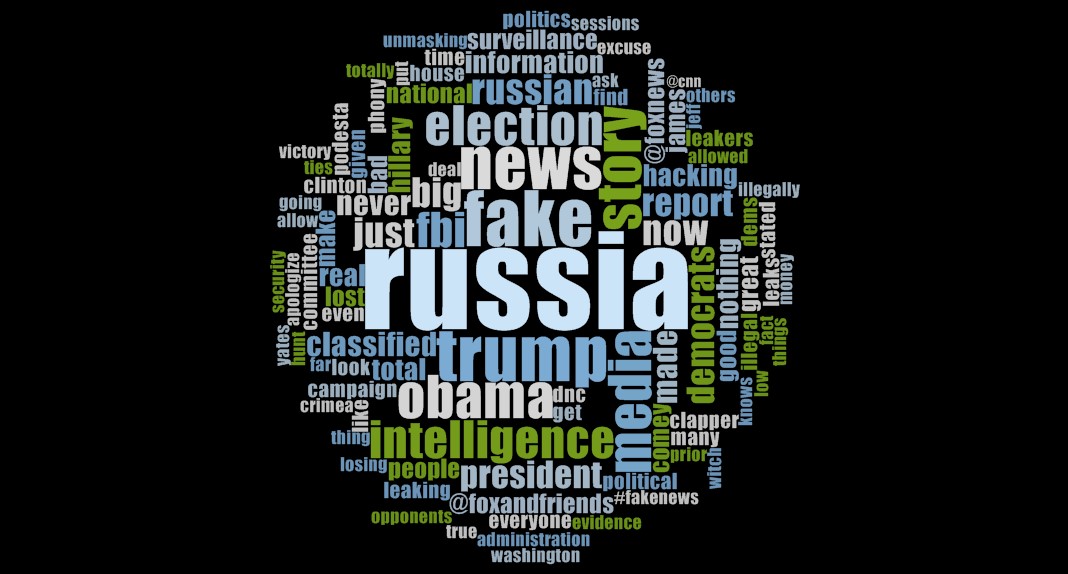Donald Trump: Strategic Communicator
The first four months of the Trump presidency have been characterized by fast-moving news that often feels chaotic. This week alone, the former Acting Attorney General Sally Yates testified to Congress that she had warned the White House that Michael Flynn, President Donald Trump’s first National Security Advisory, was potentially compromised by Russia. That same morning, the country learned that former-President Barack Obama warned President-elect Trump about hiring Flynn. Then, Tuesday afternoon, President Trump fired FBI Director James Comey who was leading the bureau’s investigation of possible collusion between Russia and individuals associated with the Trump campaign.
While this week has been notable for many reasons, the pace of news and events has been fast since prior to the president’s inauguration. In such an environment, communicating is a challenge. There is so much important news, so much opinion, and so much noise, crafting messages that resound and break through requires discipline. Donald Trump’s tweets offer a case study in strategic communication.
President Trump, as is well known, is a prolific tweeter. From an analytical perspective, tweets offer insights into the thinking of the American president—both his passions and his insecurities. Between January 5, 2017, the day that the Senate Armed Services Committee first held hearings on Russia’s interference in the 2016 election, and May 10, 2017, President Trump sent 98 tweets related to the investigation of Russian meddling. These 98 tweets include several that seem to be efforts to distract, such as those focused on Susan Rice or allegations that President Obama wiretapped candidate Trump. The above word cloud is generated from these tweets. After grouping each tweet by the day they were sent, and coding them based on the basic message the president communicated in each, a surprising result emerged.
President Trump’s tweets are not random, stream of consciousness missives. They are logical and disciplined—repeating central themes to build several narratives about the merit and the motives of the investigation as well as to distract. I lay out the top-three narratives below in order or frequency:
Nothing to See Here: 44% (43 of 98) of Trump’s Russia-related tweets since January 5 are clear denials of any wrong-doing, assertions that he has no-ties to Russia, or claims that the whole issue is “fake news.”
James Clapper and others stated that there is no evidence Potus colluded with Russia. This story is FAKE NEWS and everyone knows it!
— Donald J. Trump (@realDonaldTrump) March 20, 2017
Look! A squirrel! 33% (32 of 98) of the president’s Russia-related tweets are intended to distract the audience. From the allegations that President Obama wiretapped his phones, to the suggestion that Susan Rice unmasked Michael Flynn in NSA surveillance, or the frequent refrain of “leaks,” the president is eager to change the subject.
The real story turns out to be SURVEILLANCE and LEAKING! Find the leakers.
— Donald J. Trump (@realDonaldTrump) April 2, 2017
Sore Losers: 11% (11 of 98) of the Russia-related tweets sent by President Trump since January 5 have spoken about the motives driving the people calling-for or leading the investigations of Russia’s intervention in the 2016 elections. Essentially, the president argues that the investigations are politically motivated because the Democrats don’t want to admit that they ran a bad campaign and he beat them.
The Democrats made up and pushed the Russian story as an excuse for running a terrible campaign. Big advantage in Electoral College & lost!
— Donald J. Trump (@realDonaldTrump) March 20, 2017
Oddly enough, Dmitri Peskov, the spokesman for Russian President Vladimir Putin, echoed President Trump’s “sore losers” theme in an interview with CBS Evening News, broadcast on May 10, 2017. Responding to a question from Elizabeth Palmer about whether President Trump’s ability to build a relationship with Russia was limited, Peskov said Trump was under intense “pressure by those who still argue his presidency; by those who still cannot accept he is head of state in the United States; by those who cannot . . . accept the fact that they had lost to Mr. Trump.” In other words, “sore losers.”
The pattern that emerges from a systematic look at Donald Trump’s tweets on one issue reveal a very focused and disciplined communicator; someone who understands his chosen medium; and, not surprisingly, someone determined to shift the narrative that has cast doubt on the legitimacy of his presidency.
Postscript: On the afternoon of Thursday, May 11, 2017, President Trump sent three new tweets related to Russia and its interference in the U.S. election, including the following tweet. (+1 to “Sore Losers.”)
Russia must be laughing up their sleeves watching as the U.S. tears itself apart over a Democrat EXCUSE for losing the election.
— Donald J. Trump (@realDonaldTrump) May 11, 2017

